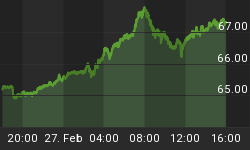The websites of the Ukrainian army, the defense ministry and major banks were knocked offline after a series of cyberattacks highlighting the nature of modern-day warfare.
At least a dozen Ukrainian websites were unreachable for a few hours due to the attacks, including the defense, foreign and culture ministries and Ukraine’s two largest state banks.
Customers of Privatbank and Oschadbank reported problems with online payments, ATM withdrawals and mobile apps.
Even though Ukraine officials didn’t rush to blame Russia for the attack, like they did with a previous cyber attack, a Ukrainian Information Ministry statement suggests Russian involvement.
“It is possible that the aggressor resorted to tactics of petty mischief, because his aggressive plans aren’t working overall,” the Ukrainian statement said.
This is the second cyberattack on Ukrainian infrastructure this year. Last month, a massive cyber-attack knocked out key government websites, the foreign ministry, the cabinet of ministers and the security and defense council, among others.
The hackers left a message on the Ukrainian Foreign Ministry website saying: “Ukrainians! … All information about you has become public. Be afraid and expect worse. It’s your past, present and future.”
Authorities in Kyiv said they had uncovered clues that Russian security services could have been behind the cyber-attack.
Unless some third party is trying to take advantage of openings amid an intensifying crisis between Ukraine and Russia, Russian hackers, either acting privately or state-sponsored, are likely behind this week’s attack.
There is certainly a recent precedent: In 2014, when it seized and annexed Crimea from Ukraine, Russia was accused of launching a series of cyber-attacks to destabilize communications and spread disinformation. Cyberattacks are strategically advantageous to create a destabilizing atmosphere ahead or instead of a physical invasion.
Since then, Russian hackers have attacked Ukraine’s power grid and caused several blackouts in the capital city of Kyiv.
The Russian track record of unleashing destructive "hybrid warfare" cyber attacks has many nations, the U.S. included, worried that the conflict in Ukraine might spillover far beyond its borders. Last month, U.S. Homeland Security warned that Russia could launch a cyberattack on U.S. infrastructure if it perceived any Western response to be a threat to its own national security.
In 2017, the U.S. government attributed a massive ransomware attack, NotPetya, to the Russian military. The NotPetya cyberattack was directed initially at Ukrainian private companies, but it spilled over and affected several international companies globally. The result was more than $10 billion in damages.
In October 2020, the U.S. The Justice Department charged six Russian intelligence officers for the 2017 attack, but also for some previous and later attacks, such as an attempt to disrupt the 2017 French Elections and the Winter Olympic Games following year.
All six, believed to reside in Russia, are charged with seven counts of conspiracy to hack, commit wire fraud and causing computer damage.
In the meantime, while the Russian government has denied any involvement in the attacks, Washington is calling for more sanctions in response.
Senate Foreign Relations Committee leaders are pushing to include sanctions for cyberattacks as part of a wider bill of actions against Russia if it invades Ukraine.
“Every time the Russians have done this, they’ve started with a cyber-attack. They did it in Georgia, they did it in Crimea, they did it in Estonia, when they didn’t even go in. It’s in their quiver,” Senator Jim Risch said, the top Republican on the Committee
















